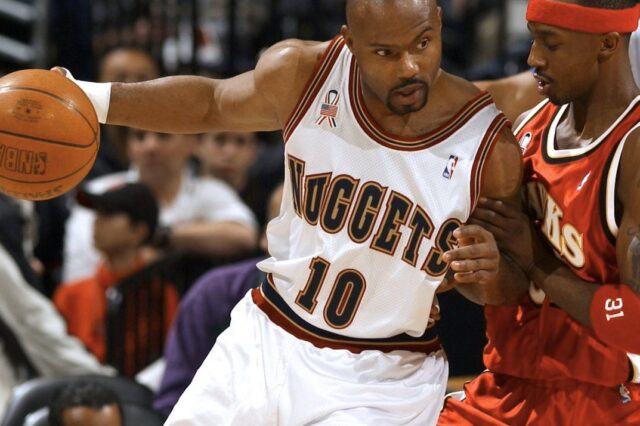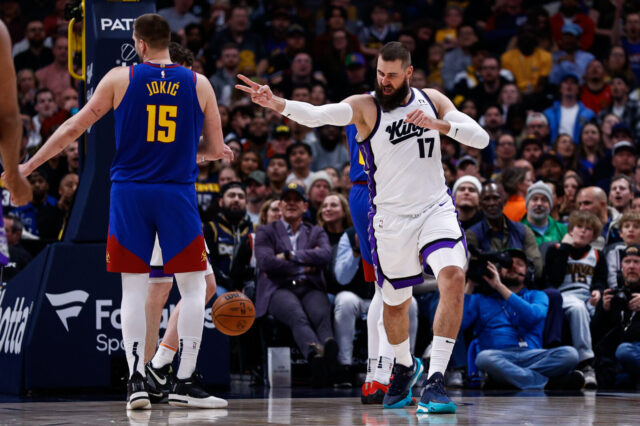Eight games into the first postseason run featuring Nikola Jokic, Jamal Murray, Gary Harris, and Paul Millsap, and the Nuggets are continuing to learn about themselves. How they win games involves a number of factors going correctly every single night: Jokic has to have a good game. One of the three other players must have a strong performance as well. Denver must win the minutes when those four are on the court.
But another factor, perhaps more important than any individual performances, reigns supreme over Denver’s playoff fate: shooting efficiency.
In Denver’s first playoff game this year, they shot dreadfully. 6/28 from behind the three point line just doesn’t get the job done, and the Nuggets knew it. They made a concerted effort to generate better shots over the next several games.
This content is no longer available.
Denver’s best scoring performances have occurred when the Nuggets are performing well from the most valuable zones on the floor. Scoring on three-pointers and consistently getting to the free throw line are when the Nuggets are at their best.
In Denver’s three worst scoring outputs in the playoffs, those numbers have dwindled. Game 1, Game 6, and Game 7 against the San Antonio Spurs featured Denver’s lowest point totals in combined points off three-pointers and free throws. 34, 27, and 24 points respectively just doesn’t get it done in today’s NBA, and it’s a miracle Denver won Game 7 with such a poor output.
Nikola Jokic is an excellent scorer around the basket, but the real reason why he’s so valuable is because of the scoring opportunities he creates for himself and others behind the three-point line and getting free throws. When he accumulates 21 combined points behind the three-point line and free throw lines like he did in Game 1 on Monday, it’s easy to put up crooked offensive numbers that are demoralizing for the opposition. Even his masterful Game 6 performance against San Antonio came with just nine points at those two spots, meaning that 34 points came inside the arc and were simply less impactful.
So, Denver’s key going forward: hit at least 12 three-pointers and score 20 points at the free throw line. If they do both, the offense becomes difficult to stop with as many efficient scorers as Denver has inside the arc. Jokic will get his, while Murray and Harris will continue to work the pick and roll and dribble hand off games. Millsap has been key on isolations and post ups and will continue to be important.
But the real key is earning the easy points. Spotting up in the corner. Cuts all the way to the rim. Transition opportunities. Racking up the easy points helps keep players fresh enough to score the tough baskets when they matter. This was one of the reasons Jokic was so tired at the end of Game 7. For the first three quarters of the game, he had to work for every shot, posting up and banging against Jakob Poeltl or LaMarcus Aldridge for seven to ten seconds at a time. If he can score points at the free throw line or behind the arc, it keeps him fresh for the rest of the game.
All in all, the average number of points Denver has scored in wins between the three-point line and free throw line is 52.0, including a dismal 24 point performance in Game 7. If Denver continues to cross the 50 point threshold, they will be in a great position to win most games going forward.


